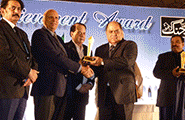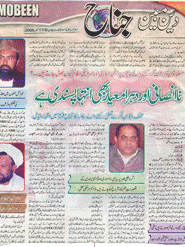KSE, a car without breaks stopped by violence
CW membership and sale of banks vital to lure foreign capital
Karachi Stock Exchange, Asia’s only rising market that proved immune to global slump was flourishing on several factors but yesterday’s political violence has put brakes to it.
Deteriorating security situation has heightened the investors’ concerns that need to be tackled, as the foreign capital sitting on the sidelines will not be tempted enough to step into Pakistan.
There were several reasons for the bullish trend with political stability on the top but the riots are the only reason for its dive. Strong fundamentals and technical reasons that were supporting market seem to be evaporating.
KSE-100 had closed at records highs several times this year and forecasts said that it would easily touch the 16,000 mark by the end of April.
Analysts were unanimous in seeing political stability and prospects of overall improvement in law and order situation as two chief driving factors for the index but now they opine otherwise.
The recent formation of coalition governments at federal and provincial levels following the February 18 general elections signaled future political stability but now situation is changing dramatically.
In this scenario, the Government should take immediate steps, as some stakeholders fear a massive outflow of foreign investment from the equity market.
“The move of the Government for countrywide coalition alliances has raised hopes but it will hurt stocks and businesses if not materialized as desired,” said Dr. Murtaza Mughal, president of Pakistan Economy Watch.
“Government should ensure that coalitions are durable and long term,” he added. The market has already absorbed news of higher inflation and an increase in trade deficit due to rising oil prices but it may not be able to stand this type of political violence.
Dr. Murtaza called upon friendly countries to help Pakistan support its balance of payments. He also demanded the Government to rejoin Commonwealth to encourage foreign investors.
The market’s performance has not been enough to tempt people to invest further. “We are not ready yet to put in a lot more,” an official of Progressive Asset Management, a London-based emerging markets fund that has invested $3.2 million in Pakistan, was recently quoted as saying in a WSJ report.
Pakistan Economy Watch point to areas where the Government needs to prove itself before the foreign capital comes back, the stalled process of privatizing the banking sector while other is situation at Karachi, business hub of the country.
The sale of shares in United Bank in 2002 proved the trigger for five years of strong capital inflows. However, the last eight months have seen little activity in a sector heavily favored by foreign investors who keen on trying to tap country’s growing consumer base.





